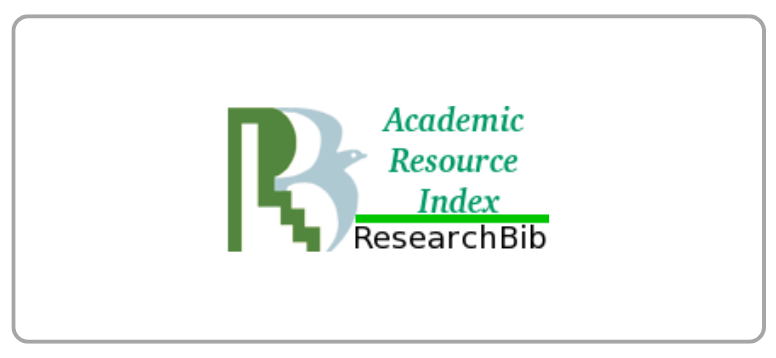Is College Students' Reading Habit Truly Related to Their Writing Ability?
DOI:
https://doi.org/10.21512/humaniora.v11i2.6427Keywords:
reading habits, writing ability, college studentsAbstract
The research aimed to describe college students’ reading habits and find the relationship between their reading habits and their writing ability. The data were collected from 50 non-English Department students who took English subject whose content was English language skills, including reading and writing. A questionnaire about reading habits was created and distributed to these students. Then in the classroom, they were assigned to write an essay about a topic they like twice. The analysis was done by analyzing the questionnaire’s results on reading habits, then comparing these results with writing scores using a statistical program, SPSS. The findings show that generally, more than half of the respondents usually read, even though they do not read quite often. Most students think that reading contributes to writing, especially in vocabulary and gathering ideas. However, their reading habits do not have a correlation with their writing ability.
Plum Analytics
References
Al-Busaidi, S. (2013). The Integration Myth : Reading and Writing. Pertanika J. Soc. Sci. & Hum., 21(3), 1231–1239.
Artieda, G. (2017). The role of L1 literacy and reading habits on the L2 achievement of adult learners of English as a foreign language. System, 66, 168–176. https://doi.org/10.1016/j.system.2017.03.020.
Boscolo, P., Ariasi, N., Del Favero, L., & Ballarin, C. (2011). Interest in an expository text: How does it flow from reading to writing? Learning and Instruction, 21(3), 467–480. https://doi.org/10.1016/j.learninstruc.2010.07.009.
Eldouma, A., & Adam, S. (2005). Relationship Between Reading and Writing in English as a Second Language in the Context of Performance, Perceptions and Strategy Use. Universiti Putra Malaysia.
Farahzad, F., & Emam, A. (2010). Reading-writing Connections in EAP Courses: Implications and Applications. Journal of Language Teaching and Research, 1(5), 596–604. https://doi.org/10.4304/jltr.1.5.596-604.
Gilakjani, A. P., & Sabouri, N. B. (2016). A Study of Factors Affecting EFL Learners’ Reading Comprehension Skill and the Strategies for Improvement. International Journal of English Linguistics, 6(5), 180–187. https://doi.org/10.5539/ijel.v6n5p180.
Hamp-Lyons, L., & Heasley, B. (2006). Study Writing: A course in writing skills for academic purposes (2nd ed.). Cambridge: Cambridge University Press.
Küçükoğlu, H. (2013). Improving Reading Skills Through Effective Reading Strategies. Procedia - Social and Behavioral Sciences, 70, 709–714. https://doi.org/10.1016/j.sbspro.2013.01.113.
Lestari, A., & Holandyah, M. (2016). The Correlation between Reading Attitude and Writing Achievement of the Eleventh Grade Students of SMA Muhammadiyah 6 Palembang. Edukasi: Jurnal Pendidikan dan Pengajaran, 3(1), 45–52.
Motlaq, H. S., & Egresh, N. (2016). The Relationship between Reading Ability and Writing Quality among Iranian EFL Academic Writers. International Journal of Humanities and Cultural Studies, 3(2), 1270–1287.
Owusu-Acheaw, M., & Larson, A. G. (2014). Reading Habits Among Students and its Effect on Academic Performance: A Study of Students of Koforidua Polytechnic. Library Philosophy and Practice, 6(5), 1–22. https://doi.org/10.1080/10556699.1993.10616359.
Schoonen, R. (2019). Are reading and writing building on the same skills ? The relationship between reading and writing in L1 and EFL. Reading and Writing, 32, 511–535. https://doi.org/10.1007/s11145-018-9874-1.
Situmorang, P. D., Samhati, S., & Agustina, E. S. (2013). Hubungan Kebiasaan Membaca dan Kemampuan Menulis Narasi Siswa Kelas IX SMP Tunas Harapan. Jurnal Kata (Bahasa, Sastra Dan Pembelajarannya), (November), 1–9.
Ünal, E., & İseri, K. (2012). Analysis of the Relationship between Reading and Writing Attitudes of Teacher Candidates and Their Academic Achievements through the Structural Equation Model. Elementary Education Online, 11(4), 1066–1076.
Wagner, S. (2002). The reading habits of teams. Journal of Reading Today, 46, 3-4.
Yoshimura, F. (2009). Effects of connecting reading and writing and a checklist to guide the reading process on EFL learners’ learning about English writing. Procedia - Social and Behavioral Sciences, 1(1), 1871–1883. https://doi.org/10.1016/j.sbspro.2009.01.330.
Downloads
Published
How to Cite
Issue
Section
License
Copyright (c) 2020 Humaniora

This work is licensed under a Creative Commons Attribution-ShareAlike 4.0 International License.
Authors who publish with this journal agree to the following terms:
a. Authors retain copyright and grant the journal right of first publication with the work simultaneously licensed under a Creative Commons Attribution License - Share Alike that allows others to share the work with an acknowledgment of the work's authorship and initial publication in this journal.
b. Authors are able to enter into separate, additional contractual arrangements for the non-exclusive distribution of the journal's published version of the work (e.g., post it to an institutional repository or publish it in a book), with an acknowledgment of its initial publication in this journal.
c. Authors are permitted and encouraged to post their work online (e.g., in institutional repositories or on their website) prior to and during the submission process, as it can lead to productive exchanges, as well as earlier and greater citation of published work.
USER RIGHTS
All articles published Open Access will be immediately and permanently free for everyone to read and download. We are continuously working with our author communities to select the best choice of license options, currently being defined for this journal as follows: Creative Commons Attribution-Share Alike (CC BY-SA)
























